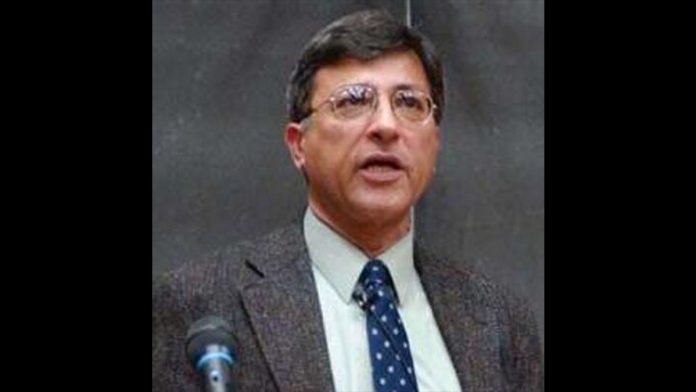The strength and vitality of a society comes from the freedom it allows ideas and intellectuals. The more a country represses free speech, expression, ideas and intellectuals the more insecure is the state and Pakistan continues to head down that path.

A case in point is Dr Pervez Hoodbhoy, a nuclear scientist and well known public intellectual, who after obtaining a PhD from MIT in US, returned to teach and work in Pakistan. Hoodbhoy is one of Pakistan’s prominent academics who has spent decades writing and promoting freedom of speech, secularism, scientific temper and education in Pakistan.
He has been awarded with the UNESCO Kalinga Prize (2003), Fulbright Award (1998), Faiz Ahmed Faiz Award (1990) and Abdus Salam Award (1984). Yet his country of birth and residence has consistently sought to suppress his views.
Hoodbhoy taught at Lahore University of Management Sciences (LUMS), Quaid e Azam University and Foreman Christian College. All three universities, however, dismissed him not because of his teaching or research but because of his views
Another case is that of Ammar Ali Jan, a Pakistani who obtained a PhD in history from Cambridge University (UK) and returned to Pakistan in 2016 to teach. Unfortunately, academic freedom is so precarious in Pakistan that in the last 4 years, three successive universities – Government College University, Punjab University and now Forman Christian College – fired Jan.

In a tweet on June 19, Ammar wrote, “I sadly announce that I will no longer be teaching at Forman Christian College. Earlier this year, my contract was changed to visiting faculty from the position of Assistant Professor. Now I wont continue as a visiting lecturer either. After returning to Pakistan in 2016, was committed to teaching at a public sector university. I joined Government College University and later Punjab University. Both institutions fired me citing “national security” as a reason. Some friends and sympathetic teachers at FCC reached out to me in this most difficult period of my life and alerted me to a job opening at the university. FCC provided me an opportunity to achieve some financial stability, build an academic community and be away from constant public scrutiny. I finally felt relaxed in Pakistan. Things began to change near the Student Solidarity March where I was accused of being an instigator. I was charged with sedition (a case still pending) after the march while my former student, Alamgir Wazir, was arrested. Unknown people began putting pressure on the FCC administration to fire me. I was called in by the Rector who told me to quit all public activities as FCC is in a “sensitive” situation and cannot become controversial. I pleaded that I have a sedition case against me while a former student is in jail for only demanding education reforms and student unions. I cannot possibly abandon him and others while there is a full-scale crackdown from the state. I felt university administrations should amplify the concerns of the students/teachers rather than mimicking the paranoia of a dysfunctional state. I was wrong, and I was told I either stay silent on the case or leave. I chose the latter option. I have wonderful memories from FCC. I received immense love & affection from students & colleagues who were always eager to learn from & challenge me.”
In 2019, Jan was arrested and an FIR registered against him stating “Dr Ammar leading a group from FC College was present at liberty round-about with 100-150 protestors of the Pashtun Ittehad Movement which had blocked roads and traffic on the call of Manzoor Ahmad Pashteen.” The protest had been part of the many such demonstrations organised all over the country including in Quetta, Islamabad and Lahore over the death of senior Pashtun Tahaffuz Movement (PTM) leader Arman Loni who allegedly died in an “extra-judicial killing” during a sit-in in Balochistan’s Loralai.”
![]()






